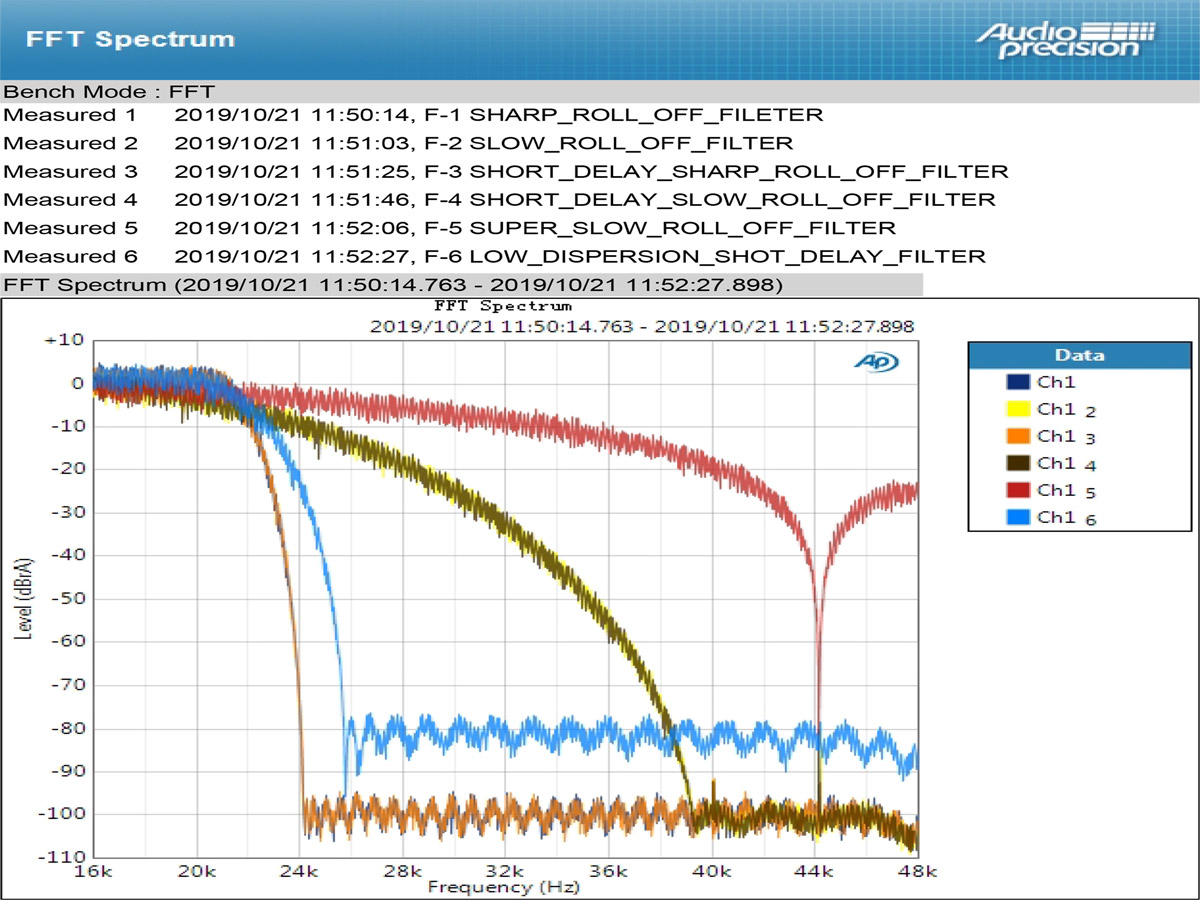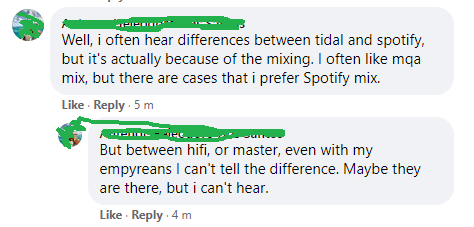You don’t want pre-ringing? Switch to a minimum-phase reconstruction filter. Problem solved.
Even a bargain-basement $100 DAC, these days, offers a user-selectable array of reconstruction filters. I don’t need MQA for that.
You don’t want pre-ringing? Switch to a minimum-phase reconstruction filter. Problem solved.
Even a bargain-basement $100 DAC, these days, offers a user-selectable array of reconstruction filters. I don’t need MQA for that.
That may be your own bias showing? I expect so ![]()
My $ 3000 DAC does not; what the heck is a “reconstruction filter” anyway?
This is as good an introduction as any:
Edit
@Jacques_Distler added the post below and it’s probably better for your purpose.
For purely audio DAC applications, I’d add this discussion.
My condolences. Might I suggest replacing it with the $130 Topping E30, which offers a choice of 6 different reconstruction filters.

Careful though @ricgf, if you decide to do that!
The Topping E30 is certainly a very decent DAC at its price point, but no more than that. I don’t know what your $3000 DAC is, but there is a very good chance that it will sound better than the Topping. Some say that all DACs that measure ‘well’ will always sound the same and that consequently the $24,000 DCS Rossini DAC cannot sound ‘better’ than the $130 Topping E30. However, my own experience tells me that DACs which measure ‘well’ by any standard can sound very different, and that the DCS along with very many other DACs would potentially sound ‘better’ than the Topping in my hi-fi systems.
And, of course messing around with reconstruction filters can be hit-or-miss and very frustrating, and potentially leaves you with a resultant sound that is far from being unadulterated - one of the every criticisms used by opponents of MQA.
So the better option is no choice of reconstruction filter? There have been some exceptional reconstruction filters implemented in various DACs over the years. I certainly would hate to have that innovation stifled by being dependent on MQA and Bob’s preferred filter.
Not necessarily! However, I am interested in how you would use the multiple reconstruction filters in your chosen DAC - for example the 6 reconstruction filters in the Topping.
Do you spend some time comparing the 6 filters and then decide that one is your favourite and subsequently use that filter exclusively with whatever genre or piece of music you happen to be playing? Alternatively, do you find that certain filters sound better than others on certain pieces of music and swap and change depending upon the music or your current filter preference?
If the first then fine, but if the second then my reaction would be what a pain! Akin (but I’d concede a little easier) to owning several cartridges for a turntable and swapping them around from time to time as the music and taste dictate.
Better to buy a DAC that just sounds ‘good’ with all music genres.
Incidentally, although I do have a DAC that supports MQA, my ‘best’ and best sounding DAC does not support MQA nor use MQA filters.
FWIW yes the first. I gave each filter an extended listen over a variety of content.
Certain filters were less fatiguing and did certain things better for me and my system.
Extended listening was important because humans are finicky creatures, diet, stress and sleep can affect our senses. As well, simple things like moving your head 6 inches can change the sound.
Once I knew what I preferred I bought a DAC with that type of filter. I liked closed-form most in HQ Player at the time, with the XTR filter based on Chord next.
Agreed!
I certainly have no quarrel with your approach to reconstruction filters.
Of course I won’t buy a cheaper DAC/amp - I just wanted to understand what he was talking about (not that I do, though).
Thank you for the link.
I extracted this:
Remember that phase is related to timing and a non-linear phase thus represents variation in temporal delay in the frequency spectrum. So when MQA talks about achieving some kind of temporal “debluring” or reducing “smearing”, it’s hard to understand what exactly is meant by this claim and how this is supposed to be implemented if the filter selection itself tends toward a non-flat (non-linear) phase response.
The filters they use remove pre ringing true … but by using those you will always end up with time shifts that are different for each frequency.
So MQA by selecting such filters creates blur i.s.o. removing it.
The blur is probably the “less fatiguing” part some MQA [moderated] people are talking about.
This is quite a statement from someone on the MQA fan page :

He cannot even hear a difference between MQA and other lossy formats.
EDIT : He just made a new post
Okay, MQA is NOT better than CD.
I see people saying things like this all the time,
when they just purchased an MQA DAC.
Correct.
Minimum-phase (or, indeed, anything other than linear-phase) filters produce a frequency-dependent time-shift. Mathematically, that’s “blurring”. Psycho-acoustically many people prefer the sound of minimum-phase.
So, you’ll note, 4 of the 6 filters offered by the Topping DAC above are minimum-phase. Filter 1,2 are linear-phase.
MQA purports to match the choice of reconstruction filter to how the source material was encoded. This appears to be mostly marketing mumbo-jumbo, except for the bit about eliminating “pre-ringing”. Apparently (according to those who’ve looked at this), their filters are minimum-phase.
But, as I said, no one needs MQA for that.
Before @Jacques_Distler comes in and sciences the hell out of this, I’d like to remind everyone that a Topping D90 is not expensive enough to reveal the subtle differences that MQA brings.
Only a higher-end device, at a minimum of 20 times the D90’s retail, with 15-20dB worst SINAD and THD, could bring out the subtle differences that an advanced audiophile would immediately recognise as being the mark of the genius behind MQA.
My DAC (3000$ one) has an ES9038PRO chipset and is very good with PCMs,
It offers 7 filters for those, but I am unable to hear a single MQA that sounds better than the original PCM version they converted it from. And not having the choice to select a filter ourselves (it is decided for us) is also not very helpful.
We don’t need MQA.
Someone replying to that post 

EDIT : I just looked up and those Empyreans are 3000$ headphones.
MQA = Mission Quack Accomplished !
The reason for the existence of MQA is to be found in that article.
To make profits would be ok, if there would be ANY benefits for costumers.
MQA is just a one way ticket.
Hi, thank you for all the valuable information… very much appreciated.
Can you tell me which of the following filters is according to you closest to the majority of the filters MQA uses? (2?)
And what filters do you prefer? (just curious)
(These are from a DAC with ES9038PRO chipset)
(extract)
Filters - SA20
…
Apodizing (SA20 default) – A compromise between
phase, frequency response and ringing. Its main
advantage is that it removes most of the ringing
that has been introduced upstream in the recording
process when the original material was recorded and
mastered.
This is not about MQA, not about “white glove”,
just describing a filter that can be used on any (unmangled) PCM
![]()
And to think this was one of their “jewel in the crown” features